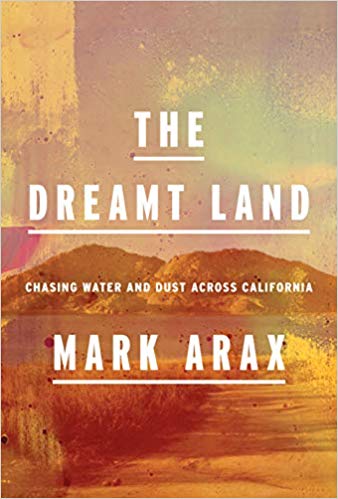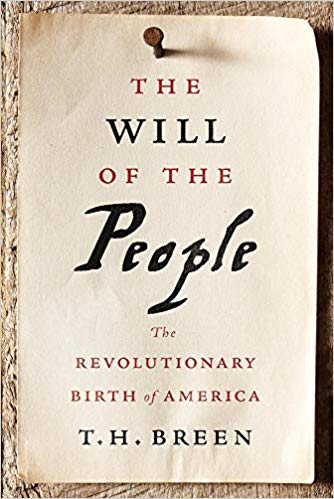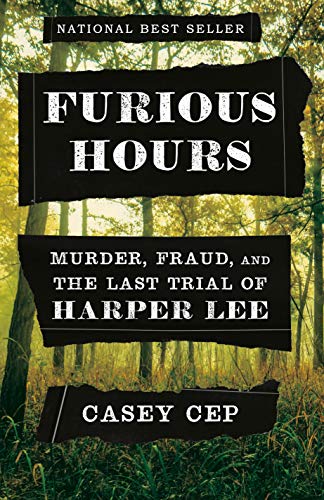Fireside Reading

To sit near a warm fire in a comfortable chair on a cold night is one of life’s pleasures that I hope you will be able to treasure over the holidays. Following are some of the books I enjoyed over the past six months.
History

The Dreamt Land, Mark Arax
This is the history of California through the unique lens of the Central Valley and that most critical resource: water. The engineering achievements are remarkable and transformative, literally re-shaping the history and development and, of course, the geography, of the state. Arax does not extol this transformation, but rather condemns the greed and corruption that accompanies, enables and ultimately desiccates the land. Whatever the ultimate judgment, our attempts to control nature, especially our water resources, is central to understanding the history of California, indeed, of much of our planet, with far-ranging consequences.

The Will of the People, T. H. Breen
We have been taught that the American Revolution was spawned from the quills of some of the greatest political polemicists in history: Thomas Paine, Thomas Jefferson, James Madison, among others, who, collectively, laid the intellectual foundation for breaking the political bonds with Britain and taking up arms against the Mother Country. But Breen rightly recognizes that revolutions fail unless they can muster widespread support, and the decision of ordinary people to risk their lives for a political cause is a deeply difficult personal and emotional act determined by much more than mellifluous words. Breen is persuasive in emphasizing the religious element in justifying the revolt, but is most original in highlighting the lack of reprisals following victory that characterized other revolutions, notably the French and Russian. Liberty, ultimately, was defined by Americans not merely in a political, moral or religious framework, but in practical terms as well, helping lay the foundation for a uniquely American form of democracy and civic values.

Furious Hours, Casey Cep
Such a riveting tale Casey Cep has told through the person of one of our most beloved and enigmatic writers, Harper Lee. We know that Lee never wrote again after To Kill a Mockingbird, but we don’t know why. Cep discovered a trove of notes Lee had on the extraordinary life of Willie Maxwell, by all accounts an upstanding citizen in rural Alabama: exemplary worker, devoted husband, and popular Baptist preacher. But for one disturbing fact: his wives had a propensity to die under mysterious circumstances. Oh, and the Reverend Maxwell had the good fortune of holding large life insurance policies on them at the time of their deaths. The book is part an enthralling story of Willie Maxwell, and what really happened, and partly how his story consumed Harper Lee for decades. To all who wondered whatever happened to Harper Lee, the answer lies in the life of the Reverend Maxwell.
Science

Origins, Lewis Dartnell
As geological history, this is highly accessible to the lay reader. Plate tectonics, volcanism, climate change over the past three billion years are all covered here, generating a sense of absolute astonishment at the extraordinary evolution of our planet. As fine a narrative of Earth’s geologic transformation as this is, what makes this book exceptional is that Dartnell, an astrobiologist in London, connects a direct line from geological events to human evolution to socioeconomic conditions today. For example, the genus, homo (that’s us), arose in the Great Rift Valley of East Africa because the Indian subcontinent slammed into Asia and created the Himalayas. If that is not obvious, Dartnell spells it out for us. His final sentence is, “the Earth made us,” and here he shows how true that is.

Horizon, Barry Lopez
Barry Lopez, dying of prostate cancer in his cabin on the Oregon coast, gives us his capstone of a life’s work, a remarkable gift to the world. On one level, these are simply the observations of one man over the decades as he travels across the globe, mostly to its most isolated places: the Antarctic and Canadian Arctic, western Australia and the Galápagos, and beyond. It is about, as he writes, “the human menace, human triumph and human failure.” Our environment is under threat from human actions, but so are the unique and special cultures of the people who inhabit these lands. There is sadness in what we are losing, but so, so much beauty in his writing.
Fiction

Purity, Jonathan Franzen
I had been avoiding Purity for a few years because I know that Franzen demands close reading. He is always exhausting, sometimes deeply disappointing, but sometimes writes with astonishing ease, as he does here. Purity, of course, is a noun, but in this case, it is also the name of the protagonist. As in The Corrections, another extraordinary novel, Franzen introduces a character, weaves multiple plots, obscured with secrets and lies, and connects it all in the end. A girl searching for her birth father, a mother crazed with guilt and shame who will not reveal her secret, a Wikileaks-like character seeking justice and repentance, it all comes together in Franzen’s expert hands.

